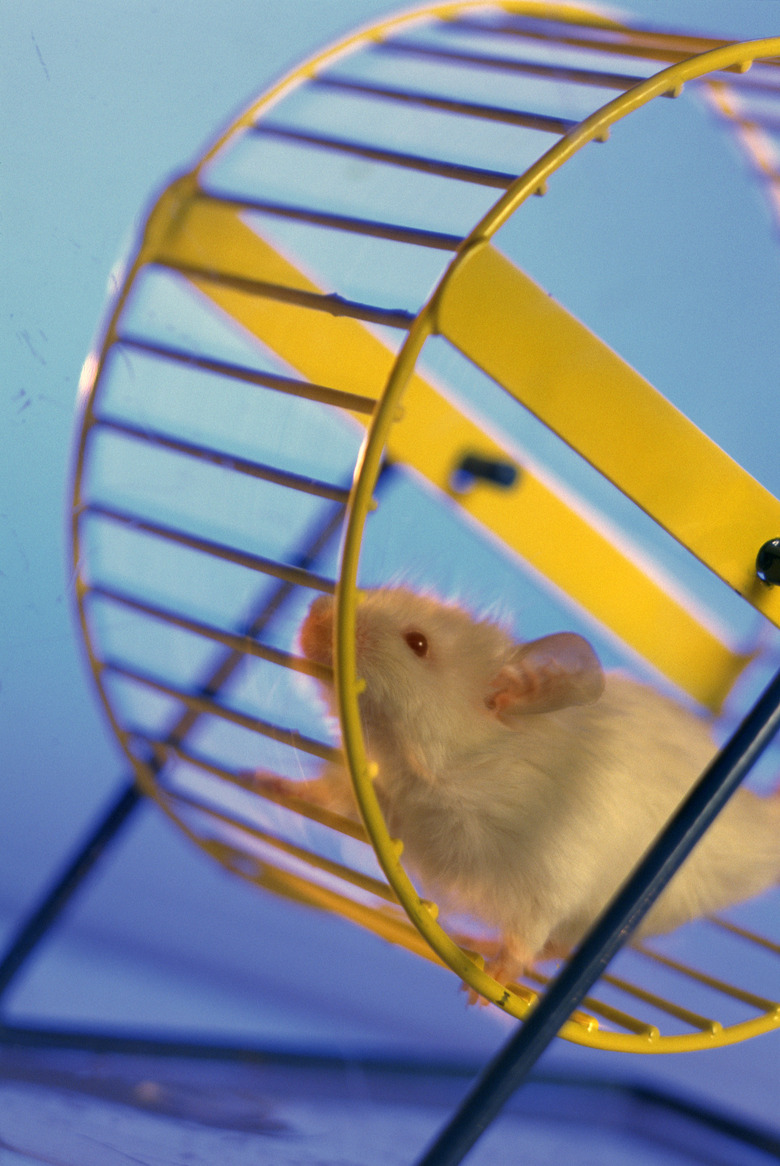How To Get Your Hamster To Be Quiet At Night
If your hamster makes too much noise at night, you can modify the cage to make it quieter or move it to a room where no one is sleeping. Hamsters often make a lot of noise during the night, and that can be too disruptive for those sleeping nearby. You don't have to suffer through noisy nights. There are ways for both you and your hamster to get what you need.
Hamsters are active at night
Hamsters are active at night
You may have heard that hamsters are nocturnal, but in the wild, hamsters are primarily crepuscular, meaning they are mostly active at dusk and dawn. Hamsters are prey, and it's easier for them to move around without being seen by predators when they're in the dark. They are awake at night, and some are more nocturnal than others, but they are mostly active during twilight hours to avoid their nocturnal predators.
They usually come out of their burrow about an hour before sunset and return to sleep about an hour after sunrise. The sunset signals wild hamsters to wake up and be active. Humans often keep the lights on after sunset in the same room where hamster cages are kept. So, they continue sleeping. When the light is finally turned off, it signals your pet hamster to wake up and be active.
Try a silent wheel
Try a silent wheel
Hamsters can run up to 5 miles a day, so a wheel that squeaks or rattles can become a real problem for anyone sleeping in the same room. If this is the noise that keeps you awake, you're not alone. Many people have this problem with their hamster at night.
Your hamster needs exercise. If you remove the wheel, even if it's just at night, he probably won't have any way of exercising during the hours he's awake. Sometimes, a squeaky wheel just needs a little vegetable oil as lubricant. Otherwise, consider getting a silent wheel made of wood or plastic. They're quiet and are often safer for your hamster than traditional metal wheels.
Plastic is a quiet alternative
Plastic is a quiet alternative
Metal cages are a popular choice for new hamsters, but many hamsters like to bite the bars, which can be excessively loud. A plastic enclosure is a quiet alternative, and you can make them fun for your hamster by adding tubes, tunnels, and hiding places. Your hamster may still want something to chew on because a hamster's teeth never stop growing. Try giving her some wooden hamster toys to chew on or an occasional dog biscuit for a treat that's good for her teeth.
Types of hamster noises
Types of hamster noises
There are several reasons your hamster might be making noises, and the type of noise can point to the reason. Some hamsters make a clicking sound (called bruxing) when they feel calm and content, or they let out a squeak here and there. However, hamsters also make noises when something is wrong.
They may scream when they're scared, grind their teeth when they're agitated, or hiss when they don't like something in their hamster cage. If sniffling and sneezing are the noises you're hearing from your hamster, she could be sick, and it's time to call the vet.
Turn off the lights earlier
Turn off the lights earlier
You may be able to gently adjust your hamster's schedule by adjusting the lights. Since hamsters are primarily crepuscular, turning their light off earlier may signal them to be active earlier. Don't try to force your hamster into a drastically different schedule because that can cause him harm, but turning off the lights earlier might encourage your hamster to finish most of his activities before it's time for you to go to bed.
Hamster cages won't stop making noise completely, but adjusting the time your hamster's energy peaks can reduce the noise coming from your hamster at night. If nothing else works, you could simply keep your hamster's cage in a room where no one sleeps.
